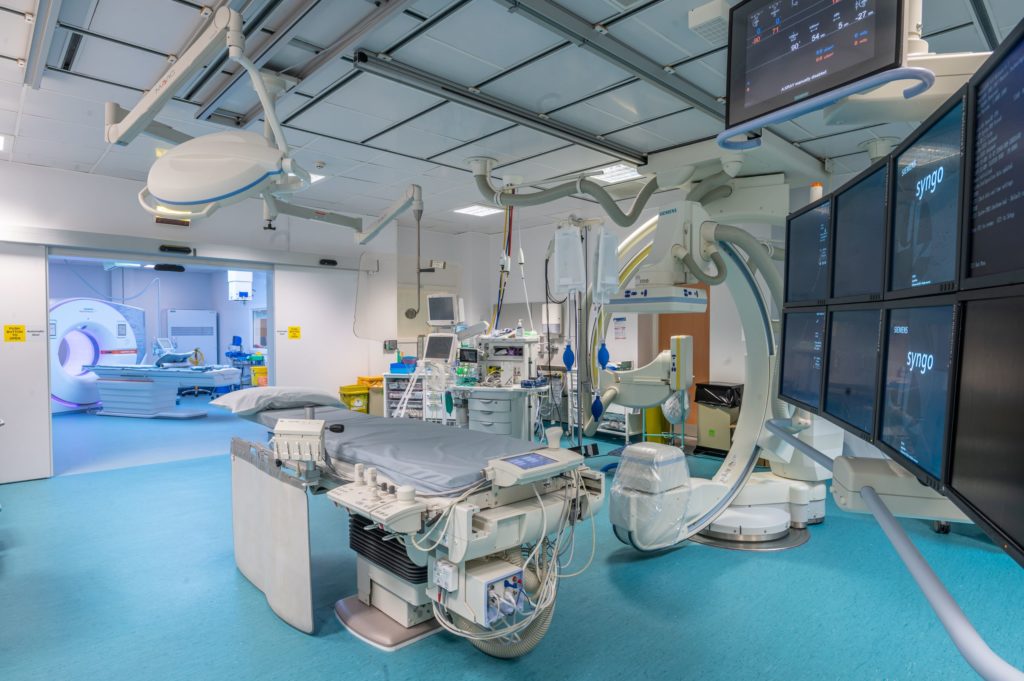Lead: Professor Charalambos Antoniades
There has been a relative lack of new drugs for cardiovascular conditions and a reticence on the part of industry to invest in this area. We believe that by employing new technologies, we can identify those patients who are most likely to benefit from specific treatments, leading to more targeted management of their condition and saving money for the NHS.

(photo: John Cairns)
Our overarching aim is to move to non-invasive methods of diagnosis. By combining this new technology with a better understanding of the characteristics of the tissue, we can use machine learning to improve diagnosis and predict which patients are more at risk.
We propose to:
Apply new analytical tools to routine cardiovascular procedures and clinical CT scans alongside multi-omics phenotyping from more than 2,000 cardiac surgery patients, who participate in the Oxford Heart, Vessels and Fat programme. By linking molecular characterisation, genome-wide screening, multi-omics and phenotyping on a large scale, with advanced image analysis, we can use AI to build ‘signatures’ that can predict future cardiovascular risk, as well as being a powerful potential tool for diagnosing cardiovascular disease. This will allow us to develop clinical tools to improve risk stratification and management of:
- Patients with acute vascular syndromes (AVS): The radiotranscriptomic tools we have developed will be adapted to the photon-counting CT to detect plaques and improve the prediction of future heart attacks. New algorithms for analysing routine cardiac and brain CT imaging are being developed to enable precise diagnosis and treatment of heart attacks. We are working with the spin-out company, Caristo Diagnostics, to develop the radiotranscriptomic tool into a clinical tool, and a version is already being used in several NHS Trusts and internationally.
- Patients at risk of cardioembolic stroke: BRC-funded research has shown that altered left atrial (LA) 4D flow is associated with major strokes, independent of atrial fibrillation. By analysing routine cardiac CT scans, we have developed radiotranscriptomic algorithms that can detect radiomic ‘fingerprints’ that characterise genes that promote atrial fibrosis and inflammation. By developing new machine- learning algorithms using routine cardiac CT scans, we are able to investigate how blood clots are formed and how they can be modified by lifestyle changes and drugs.
- Patients with hypertrophic cardiomyopathy (HCM), an inherited heart condition that is the leading cause of sudden cardiac death in young people: The HCM Registry is a unique cohort combining advanced magnetic resonance phenotyping, state-of-the-art genetics, biomarkers and outcomes. Using these data, we are developing new ways of predicting the risk of sudden cardiac death and other HCM complications, together with health economic evaluation, and this will inform which patients are selected for clinical trials. Professor Hugh Watkins’s CureHeart research team has been awarded £30m to develop the first cures for inherited heart muscle diseases by pioneering ultra-precise gene therapy technologies that could edit or silence the faulty genes that cause these deadly conditions.
We are working closely with the BRC’s Imaging Theme to ensure that the new technologies we are developing can indeed improve the diagnosis of CVD and identify those patients at greatest risk. An important resource will be the ORFAN (Oxford Risk Factors And Non Invasive Imaging) cohort, which involves up to 250,000 participants with cardiac CT scans from across several NHS and International centres.